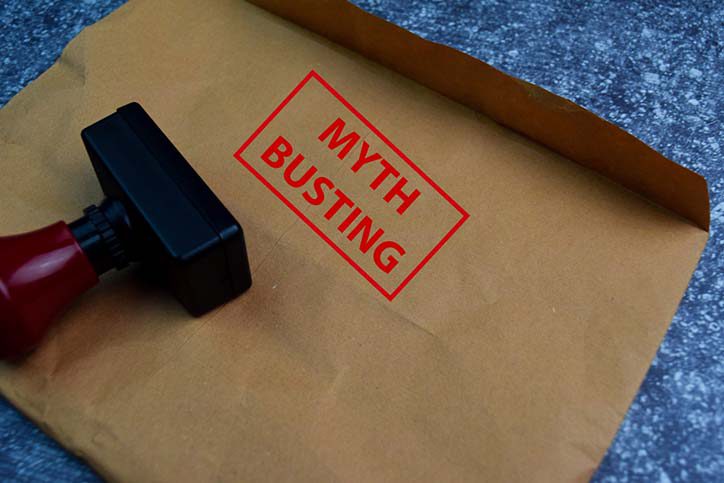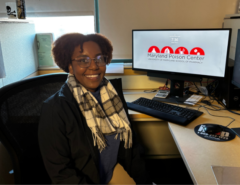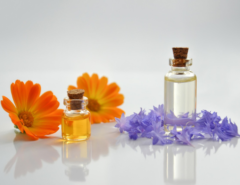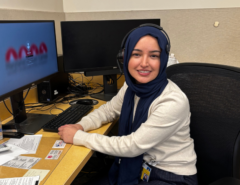The Maryland Poison Center (MPC) manages more than 37,000 cases per year. These cases involve medicines, cleaning products, chemicals, food, bites, and stings, and more. Sometimes, people are surprised to learn that things they think are a deadly poison isn’t going to cause much harm. Other people are shocked that calling the poison center is free and available 24/7. There are many myths about poisons and poison centers. We’re here today to provide the truth behind these myths.
Myth 1: Calls to the poison center are answered by robots, automated voices, or volunteers.
Truth 1: This couldn’t be further from the truth! When you call the MPC, you will be greeted by a recording, but it’s one of our specialists letting you know that you’ve reached the MPC. You don’t have to go through a phone tree pressing 1 for this or 2 for that. After the brief recording, you will reach one of the real people who answer the poison center’s phones 24/7. They are pharmacists and nurses who are trained to manage poisonings and overdoses. These poison experts receive extensive training in toxicology, the study of poisons. After managing 2,500 human exposure cases, they must pass a national exam to become a Certified Specialist in Poison Information (CSPI). They must re-certify every seven years. The specialists at the MPC have over 210 years of combined experience managing cases.
Myth 2: Calling the poison center will get me reported.
Truth 2: Calling the poison center is confidential. We work in the same way as your health care provider’s office using HIPAA. Your health information is safe with us. We do share data with the health department if you suspect you have food poisoning after eating at a public eatery.
Myth 3: Poison centers are only for children.
Truth 3: Poison centers are for everyone! We have cases ranging from ages 0-100+. Historically there have been more poisoning cases reported in children under the age of six than any other age group. As time has gone on, the numbers have changed. Now less than half of cases reported to poison centers involve a child under the age of six. In the past few years, we have managed about as many cases in children under six years as we have in adults ages 20-59. Cases in young children and older adults are mostly unintentional in nature, while cases in tweens, teens, and adults are intentional in nature. Young children generally have good outcomes when they have a poison exposure, but adults and older adults generally have more significant effects and severe outcomes from an exposure.
Myth 4: Children won’t eat things that taste bad.
Truth 4: Children’s sense of taste does not fully develop until they are older. What tastes bad to an adult may not taste bad to a child. Children are curious about their environment and that can mean they will put anything (and we mean anything!) in their mouths. We share some examples of things kids really do eat in a previous blog.
Myth 5: Herbal, natural, and organic remedies products are completely safe and non-toxic.
Truth 5: All herbal, natural, or organic remedies, personal care products, and cleaning products cannot be assumed to be safe and non-toxic. A product with natural ingredients means that they come from nature and are not man-made. But not everything in nature should be put on or in the body. While their ingredients are different than traditional products, if they are used in the wrong way, wrong amount, or by the wrong person, they can be harmful. These medicines and products should be stored and used safely, just like any other medicine and product. Remember, anything can be poisonous! We share more details about these kinds of medicines and products in a previously posted Poison Myths Busted blog.
Myth 6: Children can’t open child-proof containers
Truth 6: There is no such thing as child-proof! There are child-resistant products and containers, but they are meant to slow children down, not keep them out completely. Given enough time, most children will be able to open something that is child resistant. Store all potential poisons up, away, and out of sight.
Myth 7: Poinsettias are poisonous
Truth 7: Every year around the holidays, we hear people say that poinsettias are deadly and shouldn’t be bought and displayed in your house. If large amounts of poinsettias are eaten, it may cause stomach upset. However, pets are more sensitive and will develop symptoms after eating smaller quantities. The Pet Poison Helpline is available 24/7, for a fee, by calling 855-764-7661. Visit the Pet Poison Helpline’s poinsettia page for more information.
Myth 8: Symptoms from poisonings occur immediately.
Truth 8: While some poisons cause symptoms immediately, not all of them do. The amount of time it takes for symptoms to develop depends on the substance and how the person is exposed. When fumes are breathed in, symptoms usually happen right away. Similarly, eye exposures develop symptoms immediately. Household cleaners and chemicals that are swallowed or spilled on the skin can result in immediate symptoms like burning or irritation. Medicines and other swallowed poisons can take 30 minutes or even hours for symptoms to develop. The best thing to do after a poisoning happens is do a few first-aid steps then call the poison center for more information.
For more information on common poison myths, read our other poison myth blogs. We hope everyone feels relieved now that you know the truth behind these myths mentioned today. As always, if you have a question or someone has been poisoned, the poison experts are available 24/7 by calling 1-800-222-1222. Your call is always free and confidential.





Leave a Reply